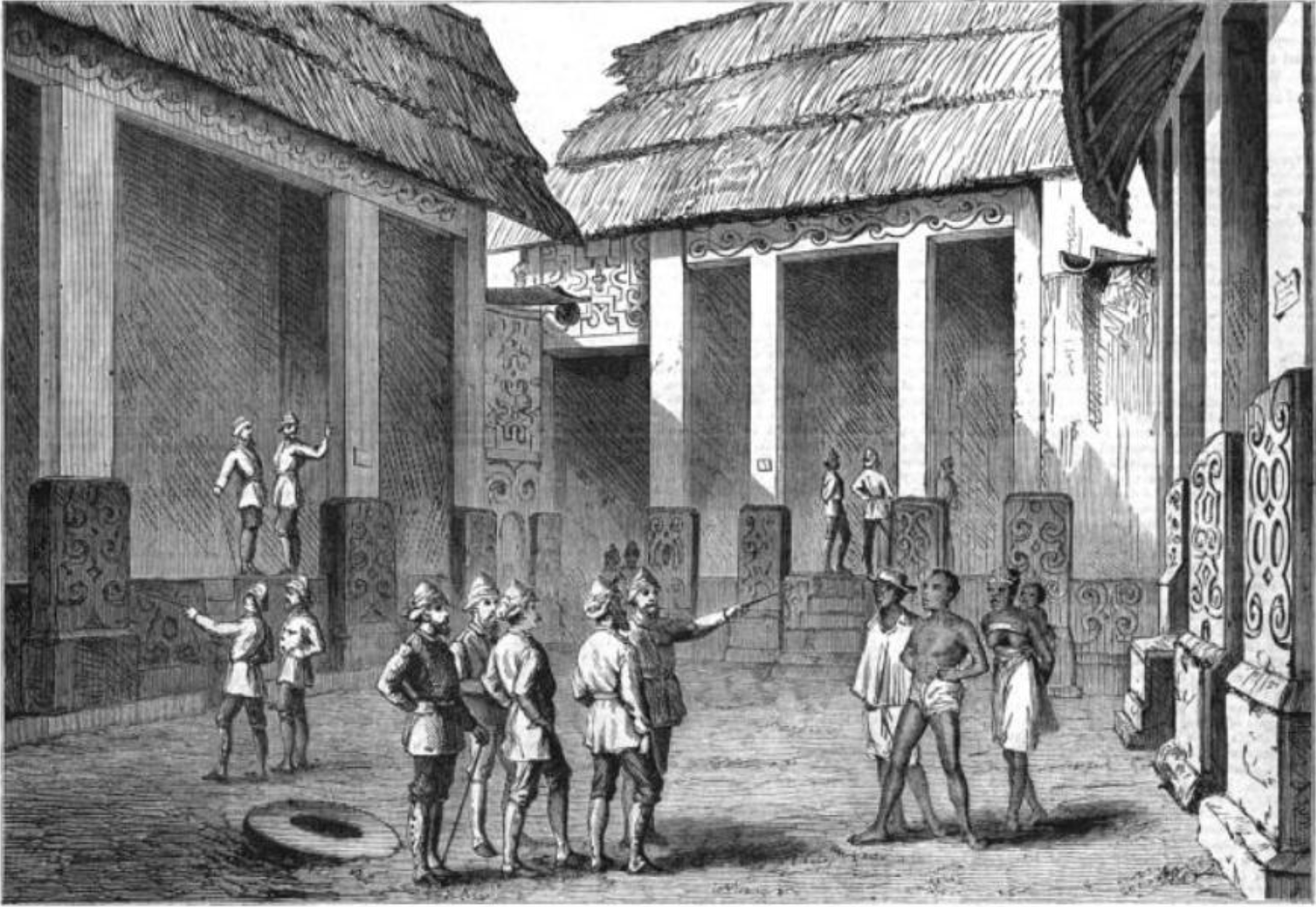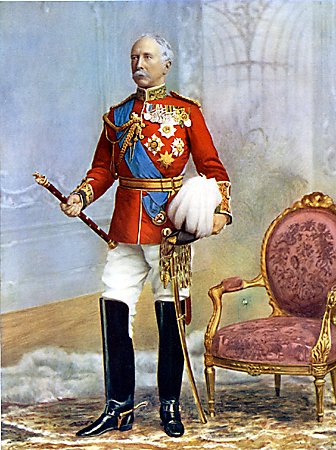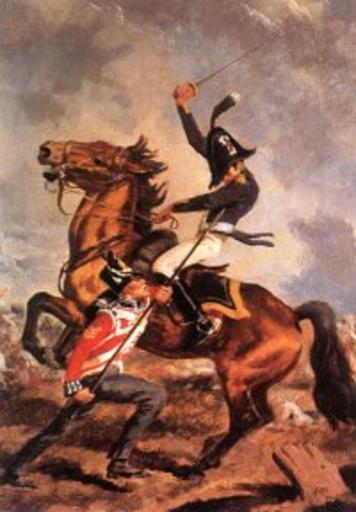|
Arthur Henry Fitzroy Paget
Sir Arthur Henry Fitzroy Paget, (1 March 1851 – 8 December 1928) was a British army general who served as Commander-in-Chief, Ireland, where he was partly responsible for the Curragh Incident. Early life Paget was the son of Lord Alfred Paget; his paternal grandfather was Henry William Paget, 1st Marquess of Anglesey. His mother Cecilia (d. 1914) was the second daughter and co-heiress of George Thomas Wyndham of Cromer Hall in Norfolk.Beckett, Ian FW" Paget, Sir Arthur Henry Fitzroy (1851–1928)" ''Oxford Dictionary of National Biography'', Oxford University Press, online edition, Sep 2011, accessed 20 October 2021 Paget was born in Berkeley Square, London, on 1 March 1851, the eldest son of six sons and six daughters. Among his siblings were Gerald Cecil Stewart Paget (grandfather of Percy Bernard, 5th Earl of Bandon), Sydney Augustus Paget, Almeric Hugh Paget, 1st Baron Queenborough, and Alexandra Harriet Paget (wife of Edward Colebrooke, 1st Baron Colebrooke). Paget wa ... [...More Info...] [...Related Items...] OR: [Wikipedia] [Google] [Baidu] |
Commander-in-Chief, Ireland
Commander-in-Chief, Ireland, was title of the commander of the British forces in Ireland before 1922. Until the Act of Union in 1800, the position involved command of the distinct Irish Army of the Kingdom of Ireland. History Marshal of Ireland The title Marshal of Ireland was awarded to William Marshal, 1st Earl of Pembroke after the Norman conquest of Ireland and was inherited by his nephew John Marshal and descendants. This hereditary ceremonial title is latterly called Earl Marshal of Ireland to distinguish it from the later non-hereditary military appointment of Marshal of Ireland or Marshal of the Army. Holders of the latter appointment by letters patent included: * William Brereton (1540) * Sir Francis Bryan (November 1548) * Sir Nicholas Bagenal (March 1547–1553; October 1565–October 1590) In 1553 deprived by Mary I. In 1566 failed to sell the office to Thomas Stukley * Walter Devereux, 1st Earl of Essex (1569 "high marshal"; 1576 "earl marshal" for life) * Henr ... [...More Info...] [...Related Items...] OR: [Wikipedia] [Google] [Baidu] |
Curragh Incident
The Curragh incident of 20 March 1914, sometimes known as the Curragh mutiny, occurred in the Curragh, County Kildare, Ireland. The Curragh Camp was then the main base for the British Army in Ireland, which at the time still formed part of the United Kingdom of Great Britain and Ireland. Ireland was scheduled to receive a measure of devolved government, which included Ulster, later in the year. The incident is important in 20th-century Irish history, and is notable for being one of the few occasions since the English Civil War in which elements of the British military openly intervened in politics. It is widely thought of as a mutiny, though no orders actually given were disobeyed. With Irish Home Rule due to become law in 1914, the British Cabinet contemplated some kind of military action against the unionist Ulster Volunteers who threatened to rebel against it. Many officers, especially those with Irish Protestant connections, of whom the most prominent was Hubert Gough, ... [...More Info...] [...Related Items...] OR: [Wikipedia] [Google] [Baidu] |
West Africa
West Africa, also known as Western Africa, is the westernmost region of Africa. The United Nations geoscheme for Africa#Western Africa, United Nations defines Western Africa as the 16 countries of Benin, Burkina Faso, Cape Verde, The Gambia, Ghana, Guinea, Guinea-Bissau, Ivory Coast, Liberia, Mali, Mauritania, Niger, Nigeria, Senegal, Sierra Leone, and Togo, as well as Saint Helena, Ascension and Tristan da Cunha (United Kingdom Overseas Territories, United Kingdom Overseas Territory).Paul R. Masson, Catherine Anne Pattillo, "Monetary union in West Africa (ECOWAS): is it desirable and how could it be achieved?" (Introduction). International Monetary Fund, 2001. The population of West Africa is estimated at around million people as of , and at 381,981,000 as of 2017, of which 189,672,000 were female and 192,309,000 male.United Nations Department of Economic and Social Affairs, Population Division (2017). World Population Prospects: The 2017 Revision, custom data acquired via webs ... [...More Info...] [...Related Items...] OR: [Wikipedia] [Google] [Baidu] |
Anglo-Ashanti Wars
The Anglo-Ashanti wars were a series of five conflicts that took place between 1824 and 1900 between the Ashanti Empire—in the Akan people, Akan interior of the Gold Coast (British colony), Gold Coast—and the British Empire and its African allies. Despite initial Ashanti victories, the British ultimately prevailed in the conflicts, resulting in the complete annexation of the Ashanti Empire by 1900. Earlier wars The British fought three earlier wars in the Gold Coast: In the Ashanti–Fante War of 1806–07, the British refused to hand over two rebels pursued by the Ashanti, but eventually handed one over (the other escaped). In the Ga–Fante War of 1811, the Ashanti sought to aid their Ga people, Ga allies in a war against the Fante and their British allies. The Ashanti army won the initial battles but was forced back by guerrilla fighting from the Fante. The Ashanti captured a British fort at Tantamkweri. In the Ashanti–Akim–Akwapim War of 1814–16 the Ashanti def ... [...More Info...] [...Related Items...] OR: [Wikipedia] [Google] [Baidu] |
Garnet Wolseley, 1st Viscount Wolseley
Field Marshal Garnet Joseph Wolseley, 1st Viscount Wolseley (4 June 183325 March 1913) was an Anglo-Irish officer in the British Army. He became one of the most influential British generals after a series of victories in Canada, West Africa and Egypt, followed by a central role in modernizing the British Army in promoting efficiency. Wolseley is considered to be one of the most prominent and decorated war heroes of the British Empire during the era of New Imperialism. He served in Burma, the Crimean War, the Indian Mutiny, China, Canada and widely throughout Africa—including his Ashanti campaign (1873–1874) and the Nile Expedition against Mahdist Sudan in 1884–85. Wolseley served as Commander-in-Chief of the Forces from 1895 to 1900. His reputation for efficiency led to the late 19th century English phrase "everything's all Sir Garnet", meaning, "All is in order." Early life and education Lord Wolseley was born into a prominent Anglo-Irish family in Dublin, the eldest s ... [...More Info...] [...Related Items...] OR: [Wikipedia] [Google] [Baidu] |
Scots Guards
The Scots Guards (SG) is one of the five Foot guards#United Kingdom, Foot Guards regiments of the British Army. Its origins are as the personal bodyguard of King Charles I of England and Scotland. Its lineage can be traced back to 1642 in the Kingdom of Scotland, although it was only placed on the English Establishment in 1686. History Formation; 17th century The regiment now known as the Scots Guards traces its origins to the Marquis of Argyll's Royal Regiment, a unit raised in 1642 by Archibald Campbell, 1st Marquess of Argyll in response to the Irish Rebellion of 1641, 1641 Irish Rebellion. After the Restoration (England), Restoration of Charles II, the George Livingston, 3rd Earl of Linlithgow, Earl of Linlithgow received a commission dated 23 November 1660 to raise a regiment which was called The Scottish Regiment of Footguards. It served in the Battle of Bothwell Bridge, 1679 Covenanter rising of 1679, as well as Argyll's Rising in June 1685, after which it was expanded ... [...More Info...] [...Related Items...] OR: [Wikipedia] [Google] [Baidu] |
Purchase Of Commissions In The British Army
Between the 17th and 19th centuries, officer's commissions in infantry and cavalry units of the English and British armies could be purchased. This avoided the need to wait to be promoted for merit or seniority, and was the usual way to obtain a rank in both armies. The practice began in 1683 during the reign of Charles II of England. It existed until it was abolished on 1 November 1871 as part of the Cardwell Reforms. Formally, the purchase price of a commission was a cash bond for good behaviour, liable to be forfeited if the officer in question was found guilty of cowardice, desertion, or gross misconduct. Great Britain and Ireland Only commissions in cavalry and infantry regiments could be purchased, up to the rank of colonel. Commissions in the Royal Engineers and the Royal Artillery were awarded to those who graduated from a course at the Royal Military Academy, Woolwich and subsequent promotion was by seniority. Moreover, the Royal Navy never practised the sale ... [...More Info...] [...Related Items...] OR: [Wikipedia] [Google] [Baidu] |
Queen Victoria
Victoria (Alexandrina Victoria; 24 May 1819 – 22 January 1901) was Queen of the United Kingdom of Great Britain and Ireland from 20 June 1837 until Death and state funeral of Queen Victoria, her death in January 1901. Her reign of 63 years and 216 days, which was List of monarchs in Britain by length of reign, longer than those of any of her predecessors, constituted the Victorian era. It was a period of industrial, political, scientific, and military change within the United Kingdom of Great Britain and Ireland, United Kingdom, and was marked by a great expansion of the British Empire. In 1876, the British parliament voted to grant her the additional title of Empress of India. Victoria was the daughter of Prince Edward, Duke of Kent and Strathearn (the fourth son of King George III), and Princess Victoria of Saxe-Coburg-Saalfeld. After the deaths of her father and grandfather in 1820, she was Kensington System, raised under close supervision by her mother and her Comptrol ... [...More Info...] [...Related Items...] OR: [Wikipedia] [Google] [Baidu] |
Wellington College, Berkshire
Wellington College is a co-educational public school providing education for boarding and day pupils in the village of Crowthorne, in Berkshire, in the United Kingdom. Wellington is a registered charity and currently educates roughly 1,100 pupils aged between 13 and 18. The college was built as a national monument to the military victory against Napoleon, and the political service as British Prime Minister, of the first Duke of Wellington, in whose honour it is named. It was established by Royal Charter in 1853. Queen Victoria laid the foundation stone in 1856, and inaugurated the school's public opening on 29 January 1859. Many former Wellington pupils fought in the trenches during the First World War, with a large number volunteering for military service immediately after leaving school. In all, 707 Wellington old boys lost their lives in the conflict. A further 501 former pupils were killed in action in the Second World War. The school is a member of the Rugby Group of ... [...More Info...] [...Related Items...] OR: [Wikipedia] [Google] [Baidu] |
Edward Colebrooke, 1st Baron Colebrooke
Edward Arthur Colebrooke, 1st Baron Colebrooke, (12 October 1861 – 28 February 1939), known as Sir Edward Colebrooke, Bt, from 1890 to 1906, was a British Liberal politician and courtier. He served as Captain of the Honourable Corps of Gentlemen-at-Arms under H. H. Asquith and David Lloyd George between 1911 and 1922. Background Colebrooke was the son of Sir Thomas Colebrooke, 4th Baronet, and his wife Elizabeth Margaret Richardson, daughter of J. Richardson. He succeeded his father in the baronetcy in 1890. Political career In 1906 Colebrooke was raised to the peerage as Baron Colebrooke, of Stebunheath in the County of Middlesex. He served under Sir Henry Campbell-Bannerman and H. H. Asquith as a Lord-in-waiting (government whip in the House of Lords) from 1906 to 1911 and then under Asquith and later David Lloyd George as Government Chief Whip in the Lords and Captain of the Honourable Corps of Gentlemen-at-Arms from 1911 to 1922. In 1914 he was admitted to the Privy C ... [...More Info...] [...Related Items...] OR: [Wikipedia] [Google] [Baidu] |
Almeric Hugh Paget, 1st Baron Queenborough
Almeric Hugh Paget, 1st Baron Queenborough (14 March 1861 – 22 September 1949) was a British industrialist and Conservative Party (UK), Conservative Party politician. He was a founder of the Almeric Paget Massage Corps, Military Massage Service and the Cambridgeshire Battalion of The Suffolk Regiment and treasurer of the League of Nations Union. Early life Born in London on 14 March 1861, Paget was the sixth and youngest son of Lord Alfred Paget (the fifth son of Henry Paget, 1st Marquess of Anglesey) and Cecilia Wyndham. His grandfather had commanded the British cavalry at the Battle of Waterloo in 1815. Educated at Harrow School, Harrow, he was later made an honorary Fellow of Corpus Christi College, Cambridge. Career Paget briefly worked for the Midland Railway before emigrating to the United States in 1881. He established a cattle ranch at Le Mars, Iowa, where he became acquainted with Theodore Roosevelt. Later he relocated to St. Paul, Minnesota, where he was a real estat ... [...More Info...] [...Related Items...] OR: [Wikipedia] [Google] [Baidu] |
Sydney Paget
Sydney Augustus Paget (19 April 1857 – 16 September 1916) was an English aristocrat who owned and raced Thoroughbred racehorses in the United States and who managed the racing operations for prominent owners, William C. Whitney and James Ben Ali Haggin. Background Sydney Paget was the fifth son and twelfth child of Cecilia Wyndham and her husband, Lord Alfred Paget. Army Sydney Paget served with the British Army in the Second Boer War, achieving the rank of Lieutenant with the machine gun section of the XIIth Yeomanry. Horse racing and management Paget's brother, Almeric, married Pauline Payne Whitney, daughter of the enormously wealthy William C. Whitney who hired Sydney Paget to manage his New York Thoroughbred racing stable. Paget ran a ranch at Big Horn, Wyoming for William Whitney where he raised Thoroughbreds on the open range. Among the other top horses Paget was involved with was the filly Hamburg Belle who won the prestigious Belmont Futurity Stakes in 1903. Ha ... [...More Info...] [...Related Items...] OR: [Wikipedia] [Google] [Baidu] |





